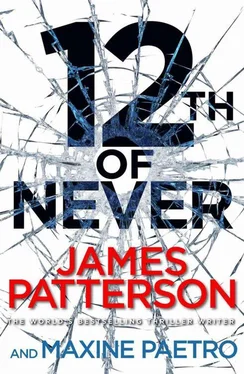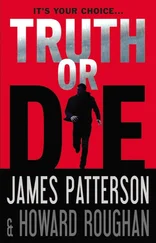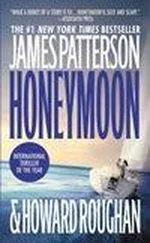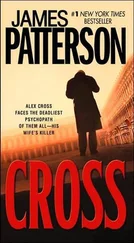The victim’s body was facedown on the walkway, and the rising water was almost to the point where it would cover the hole in the back of his head.
Charlie Clapper, longtime head of the CSIU, was stooped over the body, lifting a pocket flap with his gloved hand.
Conklin said, “Hey, Charlie. What’s the story here?”
“Well, Rich, we’ve got a white male, fifty or so, shot through the back of the head, as you can see. Hold on, I’ve got his wallet. Crystal, can you shine a light on this?”
A young tech in high rubber boots came over to them and flashed her light on the dead man’s driver’s license.
Clapper said, “Here we go. Our victim is in fact a white male, fifty-two, five foot six, hundred and forty pounds, hazel eyes. Name of Mr. Perry Judd. FYI, Mr. Judd never knew what hit him.”
“Damn it,” Conklin said. “This man is Perry Judd? You’re sure?”
“I’m only sure that I’m holding Perry Judd’s driver’s license.”
“Can you turn his head so I can see his face?” Conklin asked.
“Not until the ME gets here,” said Clapper. “You know that, Richie. Until then, we gotta cool our heels.”
Chapter 75
JOE AND I spent the night inside a cozily furnished hospital room, holding Julie, bottle-feeding her, and telling her that she was a good strong baby and that we loved her so much.
When we weren’t with Party Girl, we slumped in chairs in the waiting room, where we counted holes in the acoustic tiles and sometimes caught a few, very fractured z ’s.
As long as the night had been, the hours between 8:00 and 9:00 a.m. had been longer. We drank vending machine coffee as we waited for Dr. Erwin Dwy, Julie’s hematologist, to see us. And then, finally, he came to the waiting room and brought us back to his office.
Dr. Dwy was 6 feet 9 inches tall, going gray at the temples, and had a long, smiling face and sad eyes. He offered us chairs at his desk and we sat across from him, watching him take phone calls from parents of sick children. Between calls, he apologized, then took another call, until at last he gave us his attention.
“Let me be candid with you,” said Dr. Dwy, folding his hands on his desk. “I don’t have wonderful news.”
I was already terrified; I had been in that state since we’d last seen Dr. Gordon and she had said Julie should have an aggressive workup at the hospital. But now, looking into Dr. Dwy’s eyes, I reached a new high in terror.
I went rigid. I gripped Joe’s hand hard, and I flashed on the night I gave birth to Julie in a blackout with an electrical storm crackling around me. I remembered screaming like a wounded mountain lion—and I wanted to scream like that now.
I don’t have wonderful news.
Joe said, “Tell us what you know, Dr. Dwy.”
“Of course,” he said. “Of course. Well, we gave Julie every test in the book—blood tests, CAT scans, we even did a bone marrow biopsy. She took it very well.
“But this is what it all comes down to,” said the sad-eyed man. “Julie’s white blood cells are abnormally large.”
I blurted, “She has an infection. Dr. Gordon said she had an infection.”
“We believe she has malignant lymphoma. It’s in the leukemic stage.”
Everything went white.
The blood left my head and although I was staring at Dr. Dwy’s face, I saw nothing. I heard a buzzing, then someone was calling my name. I was on the floor, my chair tipped over beside me. I heaved and someone placed a garbage bag right beside my mouth. I heaved again, then there was something cold on my chest.
My blouse was open. Dr. Dwy had a stethoscope on my chest and was listening to my heart. I pushed him away, saying, “I’m fine. I’m fine.”
I tried to sit up, but when I did, everything began to fade again. The doctor told me to just stay down and I tried that, but after a minute or two, I asked Joe to help me up.
When I was standing, Dr. Dwy righted my chair and I buttoned my shirt.
Dr. Dwy said, “Your blood pressure is very low. Have you ever passed out before?”
“No. Because this is the first time someone told me that my daughter has cancer.”
Joe put his arm around me. Tears were sheeting down my face, but I wasn’t sobbing. I was in the present and I was listening hard. I had to keep myself together for Julie.
Chapter 76
AFTER I ASSURED Dr. Dwy that I wasn’t going to black out again, he told me and Joe about Julie’s medical condition in a language that seemed to be English, but definitely wasn’t English as I knew it. I just couldn’t grasp what he was telling us; I could only apprehend that Julie’s situation was dire.
I said to the doctor, “Please. Just tell us in simple terms.”
He said, “All you really have to understand right now is that acute leukemias move rather quickly. I don’t like to give statistics, but in this case, I have to tell you that Julie has a fifty percent chance of survival. It’s fifty percent now.
“I advise chemotherapy, the sooner the better. I’d start her on chemo today.”
I wanted to howl, “Nooo,” but I clamped the arm of the chair with one hand, squeezed the life out of Joe’s hand with the other.
My thoughts went to my tiny, helpless child, so recently born, so fiercely loved. She had only been with us for a few weeks, but I had envisioned her life extending out to the horizon. I wanted for Julie what all parents want for their children—that she would have a long and happy life.
I tuned in to Joe saying, “Doctor, what are the side effects of chemotherapy?”
Dwy said, “What you’d expect. She’ll feel sick. She’ll lose her hair. There may be some long-term effects. She could become infertile. And of course, the chemotherapy is not a guarantee that she will successfully beat the cancer. It’s a hard decision, but I know what I would do in your situation.”
Joe said, “My wife and I need a moment to talk this over.”
“Of course,” said Dr. Dwy. “Take your time. But just be aware that if we’re to go ahead with the chemo, I have to organize things for Julie.”
Dr. Dwy stood, ducked his head under the door frame, and left the room. It was unbearably bright in his office once we were no longer in the doctor’s shadow. The overhead fluorescent strip glared, and so did the reflection of light on the blond wood and the white paint. The wall of windows made me feel transparent, and I wanted to be in the dark.
I wanted to grab my baby and run, disappear down a rabbit hole or hide at the back of a cave. I wanted to put Julie back inside my body so that I could protect her, so that nothing bad could ever happen to her. How could I change the devastating fifty–fifty odds Dr. Dwy had given her?
Joe looked drained and grave. He said, “Lindsay, are you feeling okay—physically?”
“Yes.”
“What do you want to do?” he asked me.
“We don’t have a choice. We have to let them shoot her up with chemicals. And we just have to be strong for her when she gets sick. I went through chemo with my mom—”
“I’m not so sure this is the way to go.”
“ What? You aren’t? ”
I was sputtering, still dumbfounded by what Joe had said, when a nurse opened the door and told us, “I have a little girl here who wants to be held.”
Joe and I both put out our arms.
“You two, flip a coin,” the nurse said with a smile.
Joe stood up, took Julie from the nurse, thanked her, and handed our baby to me.
Oh, my God. I almost swooned again at the smell of her, at the sight of her sweet face.
Julie couldn’t die. She just couldn’t die.
Chapter 77
I HELD JULIE and tried not to crush her with my maternal love. She fussed, and so I cooed and cradled her, pushed her dark curls back from her face. Her skin was warm but not overheated. She opened her beautiful dark eyes and looked at me.
Читать дальше












